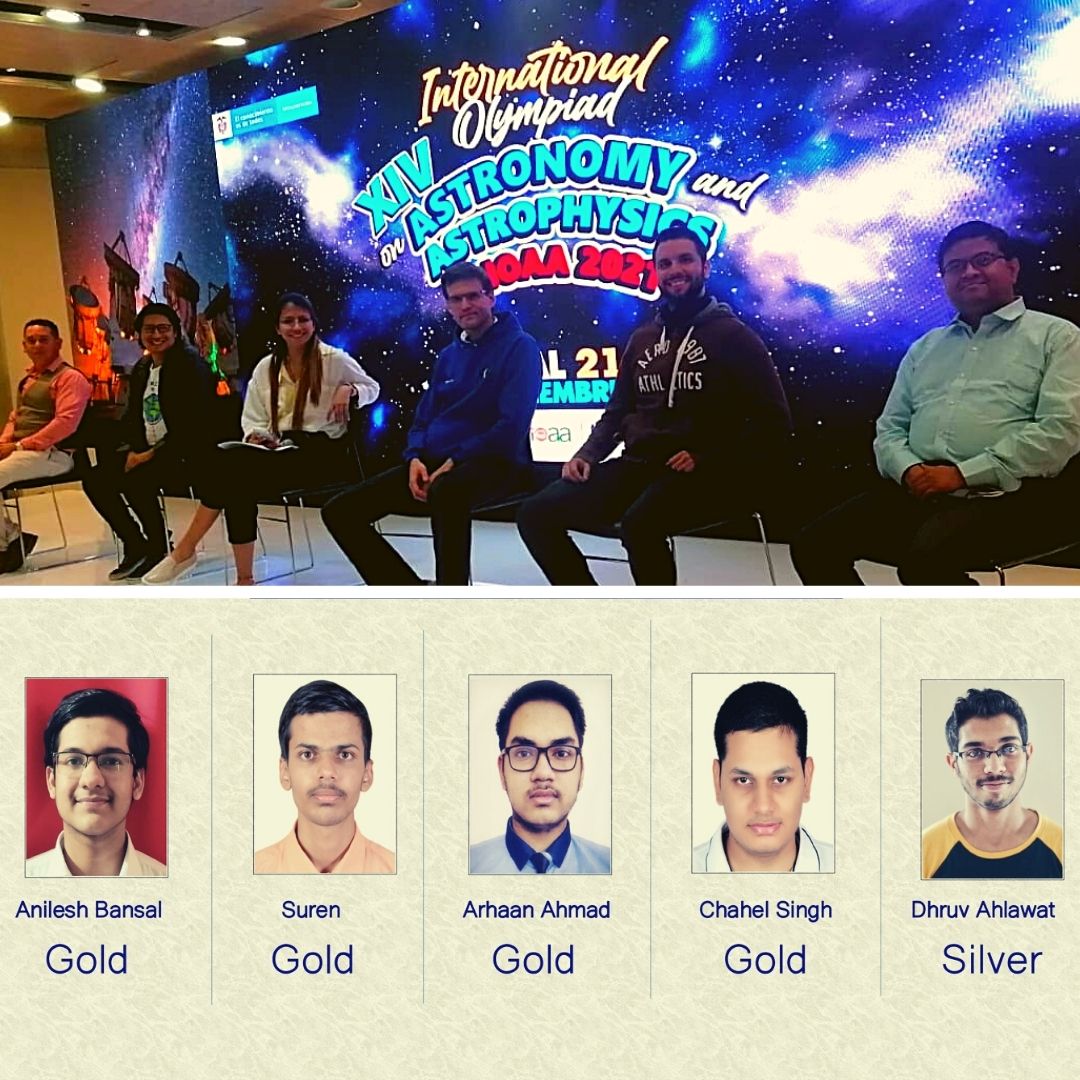
Image Credits: IOAA, Twitter/HBCSE
India Shines At International Astronomy & Astrophysics Olympiad, Bags 4 Gold, 1 Silver Medal
Writer: Palak Agrawal
Palak a journalism graduate believes in simplifying the complicated and writing about the extraordinary lives of ordinary people. She calls herself a " hodophile" or in layman words- a person who loves to travel.
India, 26 Nov 2021 7:59 AM GMT
Editor : Snehadri Sarkar |
While he is a massive sports fanatic, his interest also lies in mainstream news and nitpicking trending and less talked about everyday issues.
Creatives : Palak Agrawal
Palak a journalism graduate believes in simplifying the complicated and writing about the extraordinary lives of ordinary people. She calls herself a " hodophile" or in layman words- a person who loves to travel.
The country secured the top position along with Thailand and Russia in the overall medal tally after clinching the second prize in the team competition and the individual contests.
India scripted history at the 14th International Olympiad on Astronomy and Astrophysics (IOAA), 2021, after the participants bagged four gold medals and one silver.
The competition, organised by Colombia, was held virtually this year, between November 14 to 21, amid the COVID-19 restrictions. India secured the top position along with countries like Thailand and Russia in the overall medal tally after clinching the second prize in the team competition and the individual contests.
Among the five participants, Faridabad's Anilesh Bansal, Suren of Hisar, Arhaan Ahmad of Meerut, and Chahel Singh of Pune won the gold medal. Meanwhile, Dhru Ahlawat, a resident of Mumbai, won the silver medal.
Anilesh Bansal ranked second in the overall merit list, as reported by The Federal.
About The Olympiad
As per reports, the competition had a total of 298 students in 62 teams, including guest teams, participating from across 52 countries.
The competition consisted of a five-hour theoretical examination, a three-hour examination on data analysis, two software-based observational examinations running for three hours and one team competition for three hours.
Celestial mechanics, binary stars, extrasolar planets, astronomical telescopes, and detectors were the topics covered under the theoretical segment.
The data analysis test focused on statistical techniques and graphing in the context of real astronomical data whereas the observational tests included night sky and solar observations.
5 Medals For India
"Overall it was a very good experience attempting new kinds of problems and making new friends who shared similar interests like me. In India, four of us won gold medals and one won a silver medal,"
one of the winners, Suren told News18.
17-year-old Suren clinched gold at the global competition and also cracked one of the toughest exams in the country—obtaining 100 percentile in JEE Main and secured an All India Rank 19 in JEE Advanced.
Also Read: Odisha Doctors Treat Toddler With 70% Burn Injuries, Celebrate His Birthday Inside Hospital
 All section
All section














